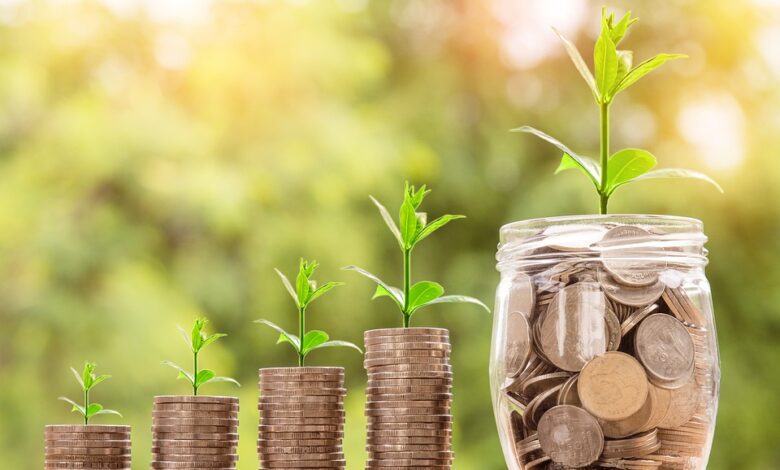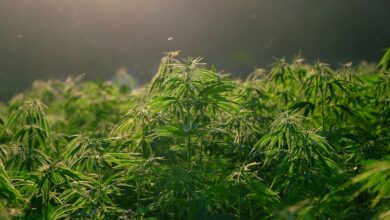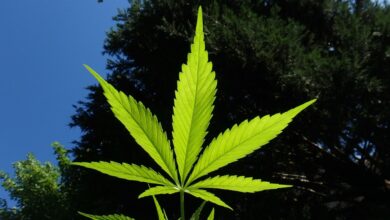Investing in Hemp: The Economic Potential of a Growing Industry

Hemp, also known as industrial hemp, is a variety of the Cannabis sativa plant species that is grown specifically for industrial uses. It is used in a wide range of products, including textiles, paper, biodegradable plastics, construction materials, health and wellness products, and even as a source of biofuel. With the growing interest in sustainable and eco-friendly products, the hemp industry has seen a resurgence in recent years, and many investors are eyeing it as a potentially lucrative opportunity.
The Economic Potential of Hemp
The economic potential of the hemp industry is significant and continues to grow as more and more uses for the plant are discovered. According to a report by Grand View Research, the global industrial hemp market size was valued at $4.71 billion in 2019 and is expected to register a compound annual growth rate (CAGR) of 15.8% from 2020 to 2027. The growing demand for sustainable products, coupled with an increasing awareness of the environmental benefits of hemp, is driving the market growth.
Hemp has the potential to disrupt a wide range of industries, including textiles, construction, agriculture, and healthcare. For example, hemp fiber can be used to produce durable and sustainable textiles, while hemp-derived CBD products are gaining popularity in the health and wellness market. In addition, hemp seeds are a rich source of nutrition and can be used in a variety of food products, from hemp oil to hemp protein powder.
Investing in the hemp industry presents an opportunity to capitalize on this growing demand for sustainable and eco-friendly products. As regulations surrounding hemp cultivation and production continue to evolve, the industry is poised for further growth, making it an attractive investment opportunity for those looking to participate in the shift towards more sustainable practices.
Factors Driving Growth in the Hemp Industry
There are several key factors driving the growth of the hemp industry and making it an attractive investment opportunity. These include:
1. Increasing demand for sustainable products: With a growing focus on sustainability and environmental responsibility, there is a rising demand for products that are made from renewable resources and have a lower environmental impact. Hemp, with its versatility and eco-friendly properties, is well-positioned to meet this demand.
2. Evolving regulatory landscape: In recent years, there has been a shift towards more favorable regulations surrounding hemp cultivation and production. The passage of the Agriculture Improvement Act of 2018, also known as the 2018 Farm Bill, removed hemp from the list of controlled substances and legalized its cultivation and production in the United States. This has opened up new opportunities for hemp farmers and businesses, and has led to a surge in interest from investors.
3. Growing awareness of the benefits of hemp: As more people become aware of the many uses and benefits of hemp, the demand for hemp-based products is on the rise. From textiles to health and wellness products, hemp has the potential to disrupt a wide range of industries and become a staple in many households.
FAQs about Investing in Hemp
Q: What are some of the risks associated with investing in the hemp industry?
A: Like any investment, there are risks associated with investing in the hemp industry. These may include regulatory uncertainties, market fluctuations, and the potential for oversupply as more players enter the market. It’s important for investors to conduct thorough due diligence and consider the long-term potential of the industry before making any investment decisions.
Q: What are some of the key factors to consider when investing in the hemp industry?
A: When considering investing in the hemp industry, it’s important to assess the market potential, regulatory landscape, and competitive dynamics. It’s also important to consider the specific subsectors within the industry, such as hemp cultivation, processing, and product manufacturing, and to understand the key drivers and challenges facing each subsector.
Q: Are there any specific investment opportunities within the hemp industry that investors should consider?
A: There are several investment opportunities within the hemp industry, including investing in hemp cultivation, processing, and product manufacturing. Additionally, there are opportunities to invest in companies that are developing innovative hemp-based products or technologies, as well as companies that provide ancillary services such as testing, logistics, and compliance.
Q: What is the long-term outlook for the hemp industry?
A: The long-term outlook for the hemp industry is positive, with continued growth expected as more uses for hemp are discovered and the regulatory landscape continues to evolve. As the world seeks sustainable solutions to pressing environmental and economic challenges, hemp is well-positioned to play a key role in a wide range of industries, making it a promising investment opportunity for those looking to capitalize on the growing demand for sustainable and eco-friendly products.
In conclusion, investing in the hemp industry presents a compelling opportunity to capitalize on the growing demand for sustainable and eco-friendly products. With its wide range of uses and potential to disrupt multiple industries, hemp has the potential to become a staple in many households and businesses. As regulations continue to evolve and the industry matures, the economic potential of hemp is expected to grow, making it an attractive investment opportunity for those looking to participate in the shift towards more sustainable practices.
[ad_2]



